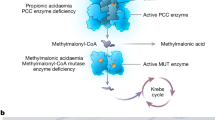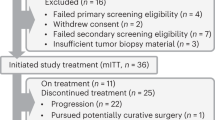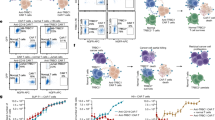Abstract
Azacitidine is a pyrimidine nucleoside analog of cytidine with hypomethylating and antileukemia activity. Azacitidine has been shown to have survival benefits in patients with high-risk myelodysplastic syndrome (MDS), and has activity in the treatment of acute myelogenous leukemia (AML). It is administered by subcutaneous (s.c.) or intravenous (i.v.) injection daily at a dose of 75 mg/m2 for 7 days every 4 weeks. An oral formulation would facilitate dosing, reduce administration side effects and potentially maximize azacitidine pharmacologic action. Previously, oral formulations of this class of agent have failed due to rapid catabolism by cytidine deaminase and hydrolysis in aqueous environments. Development of a film-coated formulation has circumvented this difficulty. In a formulation feasibility pilot study, four subjects with solid malignant tumors, AML or MDS received single oral doses of 60 or 80 mg azacitidine. Subjects demonstrated measurable plasma concentrations of azacitidine, allowing bioavailability comparisons to be made to historical pharmacokinetic data for s.c. azacitidine. Subjects safely tolerated 80 mg, a dose for which the mean bioavailability was 17.4% of historic s.c. exposure. No severe drug-related toxicities were observed. These data suggest that oral azacitidine is bioavailable in humans and should be studied in formal phase 1 trials.
This is a preview of subscription content, access via your institution
Access options
Subscribe to this journal
Receive 12 print issues and online access
$259.00 per year
only $21.58 per issue
Buy this article
- Purchase on Springer Link
- Instant access to full article PDF
Prices may be subject to local taxes which are calculated during checkout

Similar content being viewed by others
References
Herman JG, Baylin SB . Gene silencing in cancer in association with promoter hypermethylation. N Eng J Med 2003; 349: 2042–2054.
Jones PA, Taylor SM, Wilson VL . Inhibition of DNA methylation by 5-azacytidine. Recent Results Cancer Res 1983; 84: 202–211.
Santi DV, Garrett CE, Barr PJ . On the mechanism of inhibition of DNA-cytosine methyltransferases by cytosine analogs. Cell 1983; 33: 9–10.
Gabbara S, Bhagwat AS . The mechanism of inhibition of DNA (cytosine-5-)-methyltransferases by 5-azacytosine is likely to involve methyl transfer to the inhibitor. Biochem J 1995; 307: 87–92.
Bird AP . The relationship of DNA methylation to cancer. Cancer Surv 1996; 28: 87–101.
Jones PA, Laird PW . Cancer epigenetics comes of age. Nat Genet 1999; 21: 163–167.
Karpf AR, Jones DA . Reactivating the expression of methylation silenced genes in human cancer. Oncogene 2002; 21: 5496–5503.
Uchida T, Kinoshita T, Nagai H, Nakahara Y, Saito H, Hotta T et al. Hypermethylation of the p15INK4B gene in myelodysplastic syndromes. Blood 1997; 90: 1403–1409.
Herman JG, Jen J, Merlo A, Baylin SB . Hypermethylation-associated inactivation indicates a tumor suppressor role for p15INK4B. Cancer Res 1996; 56: 722–727.
Li LH, Olin EJ, Buskirk HH, Reineke LM . Cytotoxicity and mode of action of 5-azacytidine on L1210 leukemia. Cancer Res 1970; 30: 2760–2769.
Li LH, Olin EJ, Fraser TJ, Bhuyan BK . Phase specificity of 5-azacytidine against mammalian cells in tissue culture. Cancer Res 1970; 30: 2770–2775.
Silverman LR . Targeting hypomethylation of DNA to achieve cellular differentiation in myelodysplastic syndromes (MDS). Oncologist 2001; 6: 8–14.
Jones PA, Taylor SM, Wilson V . DNA modification, differentiation, and transformation. J Exp Zool 1983; 228: 287–295.
Leone G, Teofili L, Voso MT, Lübbert M . DNA methylation and demethylating drugs in myelodysplastic syndromes and secondary leukemias. Haematologica 2002; 87: 1324–1341.
Silverman LR, Holland JF, Demakos EP, Peterson B, Nelson DA, Clamon G et al. Azacitidine (Aza C) in myelodysplastic syndromes (MDS), CALGB studies 8421 and 8921. Ann Hematol 1994; 68: A12, (abstract 46).
Chabner BA, Drake JC, Johns DG . Deamination of 5-azacitidine by a human leukemia cell cytidine deaminase. Biochem Pharmacol 1973; 22: 2763–2765.
Robertson KD, Jones PA . DNA methylation: past, present and future directions. Carcinogenesis 2000; 21: 461–467.
Pharmion Corporation. Azacitidine Investigator's Brochure, 5th edn. Boulder, CO, 2007.
Marcucci G, Silverman L, Eller M, Lintz L, Beach CL . Bioavailability of azacitidine subcutaneous versus intravenous in patients with the myelodysplastic syndromes. J Clin Pharmacol 2005; 45: 597–602.
Silverman L, McKenzie D, Peterson B, Demakos E, Malone N, Holland J et al. Azacitidine prolongs survival and time to AML transformation in high-risk myeloblastic syndrome (MDS) patients ⩾65 years of age. Blood 2005; 106: 790a, (abstract 2524).
Silverman LA, Demakos EP, Peterson BL, Kornblith AB, Holland JC, Odchimar-Reissig R et al. Randomized controlled trial of azacitidine in patients with the myelodysplastic syndrome: A study of the cancer and leukemia group B. J Clin Oncol 2002; 20: 2429–2440.
Fenaux P, Mufti GJ, Finelli C, Giagounidis A, Schroch R, List AF et al. Azacitidine (AZA) treatment prolongs overall survival (OS) in higher-risk MDS patients compared with conventional car regimens (CCR): results of the AZA-001 phase III study. American Society of Hematology Annual Meeting Proceedings. Blood 2007; 110: 250a (abstract: 817).
Soriano A, Braiteh F, Garcia-Manero G, Camacho L, Hong D, Moulder S et al. Combination of 5-azacytidine (5-AZA) and valproic acid (VPA) in advanced solid cancers: A phase I study. J Clin Oncol 2007; 25: 149s (abstract: 3547).
Soriano AO, Yang H, Faderl S, Estrov Z, Giles F, Ravandi F et al. Safety and clinical activity of the combination of 5-azcytidine, valproic acid, and all-trans retinoic acid in acute myeloid leukemia and myelodysplastic syndrome. Blood 2007; 110: 2302–2308.
Gore S, Jiemjit A, Silverman L, Aucott T, Baylin S, Carraway H et al. Combined methyltransferase/histone deacetylase inhibition with 5-azacitidine and MS-275 in patients with MDS, CMMoL, and AML: clinical response, histone acetylation and DNA damage. American Society of Hematology Annual Meeting Proceedings. Blood 2006; 108: 1569, (abstract 517).
Dunbar C, Travis W, Kan YW, Nienhuis A . 5-Azacytidine treatment in a beta (0)-thalassaemic patient unable to be transfused due to multiple alloantibodies. Br J Haematol 1989; 72: 467–468.
Dover GJ, Charache S, Boyer SH, Vogelsang G, Moyer M . 5-Azacytidine increases HbF production and reduces anemia in sickle cell disease: dose-response analysis of subcutaneous and oral dosage regimens. Blood 1985; 66: 527–532.
Dover GJ, Charache S, Nora R, Boyer SH . Progress toward increasing fetal hemoglobin production in man: experience with 5-azacytidine and hydroxyurea. Ann N Y Acad Sci 1985; 445: 218–224.
Acknowledgements
We acknowledge Jovanka Solorzano (MBA), Clinical Operations, Pharmion Corporation; Eric Laille (MS) and Azmi Nasser (B.Pharm, PhD), Department of Clinical Pharmacology, Pharmion Corporation and Margaret Beatty (DVM, MS), Medical and Science Writing for their assistance with data analyses and manuscript preparation. This study was supported by Pharmion Corporation. GG-M is supported in part by a Physician-Scientist Award funded by the Commonwealth Cancer Foundation for Research and a Leukemia and Lymphoma Translational Research Grant #6173-07 and also supported in part by NCI Grant 5P01 CA108631.
Author information
Authors and Affiliations
Corresponding author
Rights and permissions
About this article
Cite this article
Garcia-Manero, G., Stoltz, M., Ward, M. et al. A pilot pharmacokinetic study of oral azacitidine. Leukemia 22, 1680–1684 (2008). https://doi.org/10.1038/leu.2008.145
Received:
Accepted:
Published:
Issue Date:
DOI: https://doi.org/10.1038/leu.2008.145
Keywords
This article is cited by
-
Treatment advances for pediatric and adult onset neoplasms with monocytosis
Current Hematologic Malignancy Reports (2021)
-
Epigenetics and the overhealing wound: the role of DNA methylation in fibrosis
Fibrogenesis & Tissue Repair (2015)
-
Oral and intravenous pharmacokinetics of 5-fluoro-2′-deoxycytidine and THU in cynomolgus monkeys and humans
Cancer Chemotherapy and Pharmacology (2015)
-
Novel agents in acute myeloid leukemia
International Journal of Hematology (2012)
-
Reduction of 5-azacitidine induced skin reactions in MDS patients with evening primrose oil
Annals of Hematology (2010)



